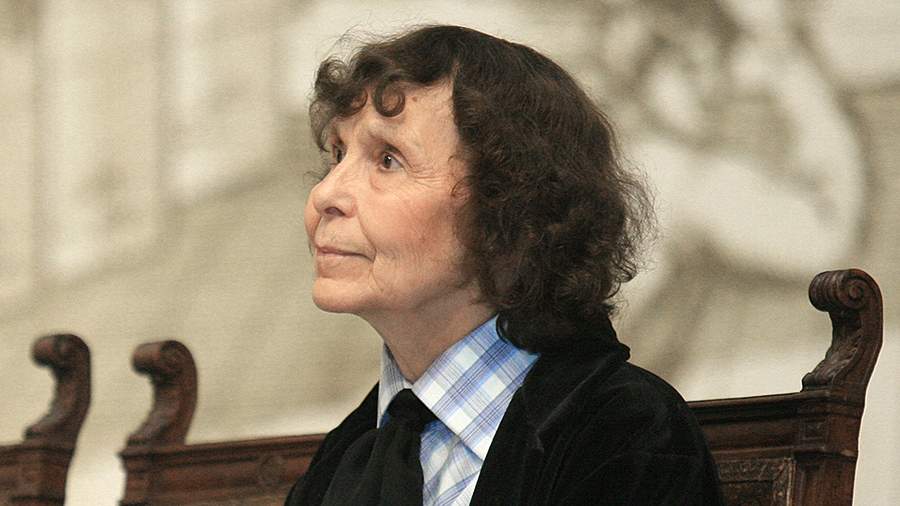Sofia Gubaidulina, composer. Biography

Sofia (birth name Sania) Gubaidulina was born in 1931 in Chistopol. Her family was not creative: her mother was a primary school teacher, and her father was a surveying engineer. As the composer herself recalled in a conversation with Izvestia, a happy accident led her into the world of professional music.
When Gubaidulina was only seven months old, she moved to Kazan with her parents and sisters. There, on the same street with her, lived a music teacher, whose mother-in-law loved to watch children playing, and a young man nicknamed Shurka the fool often came to the courtyard where Sania was walking. He played the harmonica for the residents, and the girl danced with pleasure next to him. The teacher's mother-in-law noticed this and suggested that the daughter-in-law take a little dancer and her sister as students. A few months later, the girls were sent to a music school.
Gubaidulina's childhood was not cloudless. To ensure a decent life for the children, the head of the family constantly went on business trips, and the mother was responsible for raising the girls. However, the money was still barely enough for basic necessities. Nevertheless, one day her father brought a piano "Locksmith" to the house, and this event became one of the happiest in Sania's life. The girl immediately began experimenting, composing simple melodies.
"Extraordinary sound possibilities opened up, and I immediately realized that this was my life. And I don't want anything else!" the composer said in an interview.
In 1949, Gubaidulina graduated from the Kazan Music College and entered the Kazan State Conservatory. She studied piano with Grigory Kogan and often performed at student concerts. She was predicted to have a successful performing career, but she dreamed of writing music on her own. Therefore, in 1954, she went to the capital to continue her studies at the Tchaikovsky Moscow State Conservatory in composition.
Despite her artistry and bright, original talent, not all teachers approved of Gubaidulina's work, believing that her music did not fit into the traditional canons. However, the aspiring composer was supported by Dmitry Shostakovich, who told her at the meeting: "I wish you to continue on your wrong path." Sofia remembered these words for the rest of her life.
In the late 1950s and early 1960s, Gubaidulina created her first serious works: the vocal cycle "Phacelia", the ballets "The Magic Pipe" and "Running on the Waves". In 1963, she completed postgraduate studies at the Moscow Conservatory and joined the USSR Union of Composers. In the same year, she began composing music for cartoons and movies. Her works were featured in such films as "Believe It or Not..." (1964), "Vertical" (1967), "Mowgli" (1973), "Treasure" (1977), "Scarecrow" (1983), "Kreutzer Sonata" (1987) and others.
In 1968, Gubaidulina completed one of her large—scale works for orchestra, the cantata "Night in Memphis", and a year later the cantata "Rubait" based on poems by Oriental poets was released. In 1969-1970, the composer worked at the Moscow Experimental Studio of Electronic Music and even wrote a piece for an electronic synthesizer called "Living – inanimate". And in 1974, her composition for the symphony orchestra "Steps" was awarded the prize of the International Composer Competition in Rome.
In 1979, at the sixth Congress of the USSR Union of Composers, the work of Gubaidulina and six other authors was severely criticized by the first secretary of the board, Tikhon Khrennikov. All of these composers were blacklisted, as their music was no longer played in concert halls and on the radio. Despite the difficult conditions, Sofia continued to create and was even able to see the advantages of isolation — it freed up time to compose new works.
After the beginning of perestroika, the ban on Gubaidulina's works was lifted, she began to take part in foreign concerts. Outside the USSR, she became famous for the violin concerto Offertorium ("Sacrifice") performed by Latvian violinist Gidon Kremer.
In 1991, the composer went to Germany, but often returned to Russia. In 2001, the Sofia Gubaidulina Center for Contemporary Music opened in Kazan, and in 2011 she was recognized as an honorary citizen of the city. The Concordia International Contemporary Music Festival, held annually in the capital of the Republic of Tatarstan, is also named after the composer.
During her career, Gubaidulina has written more than 100 works of various genres and music for 25 films. In 1989, she was awarded the title of Honored Artist of the RSFSR. In 2010, the composer was awarded the Order of Friendship, and in 2022 — the Order of Merit in Culture and Art.
Sofia Gubaidulina — death
Gubaidulina's death was announced on March 13, 2025 by the press service of the Kazan City Hall. She was 93 years old.
"Sofia Asgatovna was a man of the epoch, an outstanding composer of our time and a man of outstanding personal qualities," the publication noted.
The cause of the composer's death is not mentioned.
Переведено сервисом «Яндекс Переводчик»
